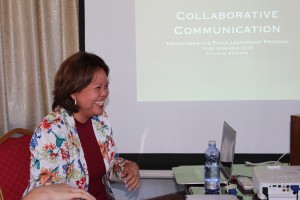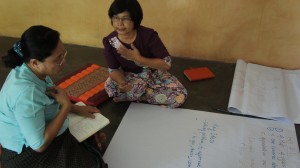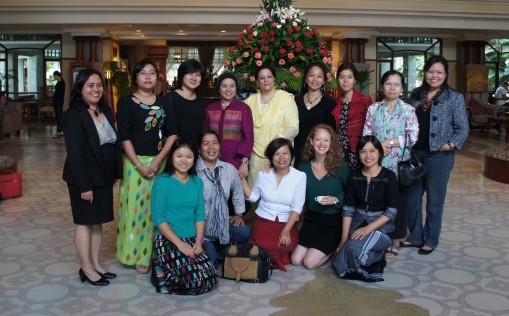Empowering women at the forefront of peace
Increasing women’s participation in peace efforts is not just a question of quantity – it’s also about increasing the quality of leadership. This focus on the quality of an individual’s leadership is at the heart of the Peace Leadership Programme.
 The persistent and significant gap in women’s decision making power and formal participation in peace processes reflects a fundamental structural power imbalance at play, despite widespread academic and practitioner consensus that empowering women is essential for durable peace.
The persistent and significant gap in women’s decision making power and formal participation in peace processes reflects a fundamental structural power imbalance at play, despite widespread academic and practitioner consensus that empowering women is essential for durable peace.
We also know that peacebuilding is not a short-term sprint, it is a long, emotional and intense marathon and many of the leaders at the forefront of advocacy, negotiations and organising run the risk of burning out.
 The context of peacebuilding is characterized by a great deal of transition. Many of the leaders CPCS works with have gone from activists to executive directors, from rebels to negotiators, from local independent consultants to directors of national initiatives.
The context of peacebuilding is characterized by a great deal of transition. Many of the leaders CPCS works with have gone from activists to executive directors, from rebels to negotiators, from local independent consultants to directors of national initiatives.
For those holding senior management positions, the pressure to perform, deliver and remain emotionally and professionally balanced is extreme. This programme is about supporting key women already at the forefront of peace work.

